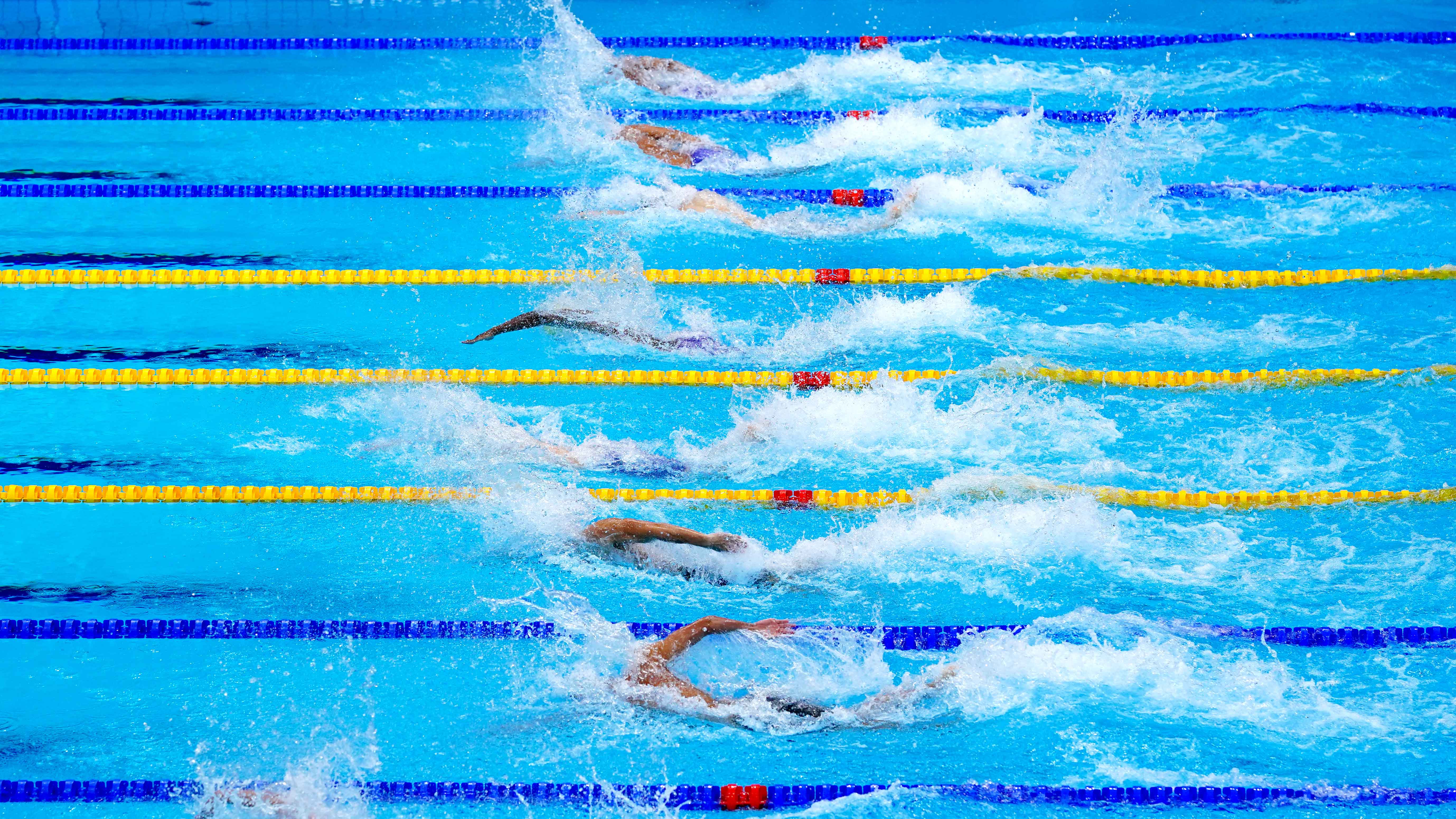One moment Lydia Jacoby was at the center of the global stage, and the next, she was alone with her thoughts.
In 2021, the then-17-year-old became the first swimmer from Alaska to qualify for the Olympics and went on to improbably win the 100-meter breaststroke at the Tokyo Games.
Her lifetime goal was achieved at a young age, as she reached the pinnacle of her sport. But the celebration period only lasted so long.
It can become harder to dream once the dream has come true. That is one of the many contributing factors in post-Olympic depression, a condition that can overwhelm athletes after failure or triumph.
Get Tri-state area news delivered to your inbox. Sign up for NBC New York's News Headlines newsletter.
"I feel like nobody entirely understands depression because everybody's version of that is so different," Jacoby said on NBC's “My New Favorite Olympian.”
"But I think for me, after the Olympics, going from a small town in Alaska, I had never had much outside pressure."
Working toward an accomplishment of such magnitude requires hyperfocus – a one-dimensional mindset that concentrates almost exclusively on the singular path leading to the top of the podium. Once there, then what?
For some, the mind's silence can become deafening, the chatter suddenly slips away as if a diver had just crossed from the open air to beneath the water’s surface.
For others, the void left by unwelcomed mental freedom can be filled with the immense pressure that follow success.
"People don't care what you do until you've done something," Jacoby said. "And for me, that was definitely very visible."
Jacoby said after the Olympics she not only lost the desire to swim, but to even get out of bed.
“I've had points where I am severely depressed and there will be weeks where I just don't want to live my life anymore,” she said.
Jacoby found new motivation after enrolling at the University of Texas at Austin, where she became a rare college freshman with a glimmering gold medal.
People don't care what you do until you've done something
Lydia Jacoby
"I think I was just ready for something new," Jacoby said. "I had really reached the pinnacle of sports, and I just was kind of lost on where to go next. So, I think the move to Texas was a great one in that regard."
The hometown hero from Seward, Alaska went from a city with a population of less than 3,000 people to a university with more than 50,000 students. There she blended in as another face in the crowd, another kid in the class, another swimmer in the pool.
Another big fish in a big pond.
At UT, she became refocused and learned about setting limitations to avoid feeling overwhelmed.
Texas women's swimming and diving coach Carol Capitani said one of the primary jobs in coaching is to give athletes like Jacoby some "guardrails."
"Not everyone deserves to have every piece of her," Capitani said. "Just kind of helping her learn herself so that she knows who is deserving of her time and who is deserving of her energy has been a pretty powerful lesson."
Many high-profile athletes have publicly announced their recent struggles with mental health, including four-time gold-medal winning Olympic gymnast Simone Biles.
Not everyone deserves to have every piece of her
UT swimming and diving coach Carol Capitani
Missy Franklin, one of only two U.S. swimmers over the last two decades to win an individual Olympic gold medal at a younger age than Jacoby, went public with her mental health struggles after her early success.
She received some backlash, hearing one early critic say, "Oh, you poor Olympic gold medalist."
"One of the things internally that I was struggling with the most is not only the feelings of depression, but the guilt of those feelings, thinking those exact thoughts of, 'How could I possibly feel like this?'" Franklin said on “My New Favorite Olympian.”
"How can I be suffering in this way when God has given me so much, when I've been blessed with so much, when I've achieved my dreams and been successful at the top of my sport?"
Dr. Michael Gervais, who has worked with Olympians on high performance levels and well-being, explained the range of emotions that come with post-Olympic depression by using the analogy of a circus coming to town.
"It's exciting. There's all the family fun that would take place. It's a place. It's a destination that you want to go to," he said. "And when the circus leaves town, the grass is trampled. There's trash everywhere."
That can leave athletes who have dedicated their mindspace to one very specific objective without direction.
"So, you've got this big idea of purpose. I know exactly why I'm waking up. I know exactly what I'm supposed to be doing. I am excited in this pursuit of the unknown because I don't know how it's going to go. And that animation and that aliveness and that discipline and drive to try to be one's very best amongst others who are also trying the same is such an electric way to go through life. And then when it ends, the question begs itself, 'Well, now what? Who am I?'"
More on Olympic swimming
Jacoby rediscovered who she was, and reignited her love for the sport, while at Texas.
"I kind of burnt out post-Olympics," she said. "So, I think I'm kind of having that year to do things, make mistakes, learn, have some fun. And then going to Texas was a good reset, reintroduction to the sport. New coaches, new teammates. So, I think that that was a really good move for me to kind of transition into that next point in my life."
Jacoby was interviewed for “My New Favorite Olympian,” a series that tells the stories of Team USA’s most inspiring athletes and the causes they champion. Subscribe to My New Favorite Olympian wherever you get your podcasts.




